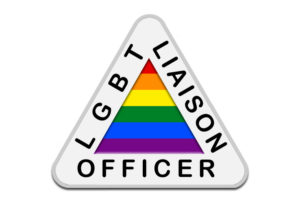Every Agency Needs An LGBT Liaison
In cities large and small, in every region and state, there is a population of lesbian, gay, bisexual and transgender people. This isn’t news and shouldn’t surprise even the most naive law enforcement professional. How visible LGBT people are in a community depends on how safe they feel. Sexuality transcends race, nationality, ethnicity, and gender so, whether your city has a large population of refugees or immigrants from countries that ban open non-heterosexuality, you have LGBT people living in your jurisdiction.
 The problems facing LGBT people are similar to those facing heterosexual, cisgender people (those people who’s birth sex matches their gender identity). Domestic violence, drug addiction, and other crimes are equally present within LGBT families and communities The difference is that LGBT people who live in fear of police and other forces in the community won’t call for help. They won’t report crime to the police, which can lead to further victimization. While your agency may have a trusting relationship with much of your community, remember that LGBT people, especially those from other countries, bring with them a history that may not be so trusting of police.
The problems facing LGBT people are similar to those facing heterosexual, cisgender people (those people who’s birth sex matches their gender identity). Domestic violence, drug addiction, and other crimes are equally present within LGBT families and communities The difference is that LGBT people who live in fear of police and other forces in the community won’t call for help. They won’t report crime to the police, which can lead to further victimization. While your agency may have a trusting relationship with much of your community, remember that LGBT people, especially those from other countries, bring with them a history that may not be so trusting of police.
One of the most effective ways of connecting with LGBT people in your community is to designate an LGBT liaison officer. Ideally, this officer is a member of the LGBT community, but it isn’t absolutely required. The key is to appoint someone who is credible and who has the ability to develop trust. It must be someone who understands the diversity of sexual orientation and gender identity. These are subjects that can be easily learned. More difficult is finding someone who has the capacity for understanding, compassion, and the patience needed to break through the barriers of distrust and the history of abuse by police many LGBT people have experienced or heard about.
San Francisco Police have for decades been working on developing a positive relationship with the very large and visible LGBT community in their city. They’ve done a great job overall and recently took the additional step of appointing a liaison specifically for the transgender community. Transgender people have an extremely high change of being brutally victimized at some point in their lives. The rate of suicide for transgender people is among the highest in the nation. Likewise is the lack of trust in police, based on a generally negative history of interactions. We applaud San Francisco Police for recognizing this need and taking action.
Over the years, we’ve received questions from departments asking why an LGBT liaison is necessary. Often the comment we hear is, “we don’t have a problem; we never hear from them.” This attitude is riddled with problems, but no matter your agency’s history, why wait until there is a problem to take action and to do something to build trust with a community you know is present in your jurisdiction. Don’t know how to get started? We can help. If your agency is interested in developing an LGBT liaison position or needs training for one you’ve designated, send us a note using the Contact Us link at the top of our website.
